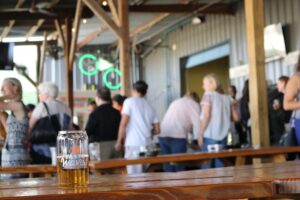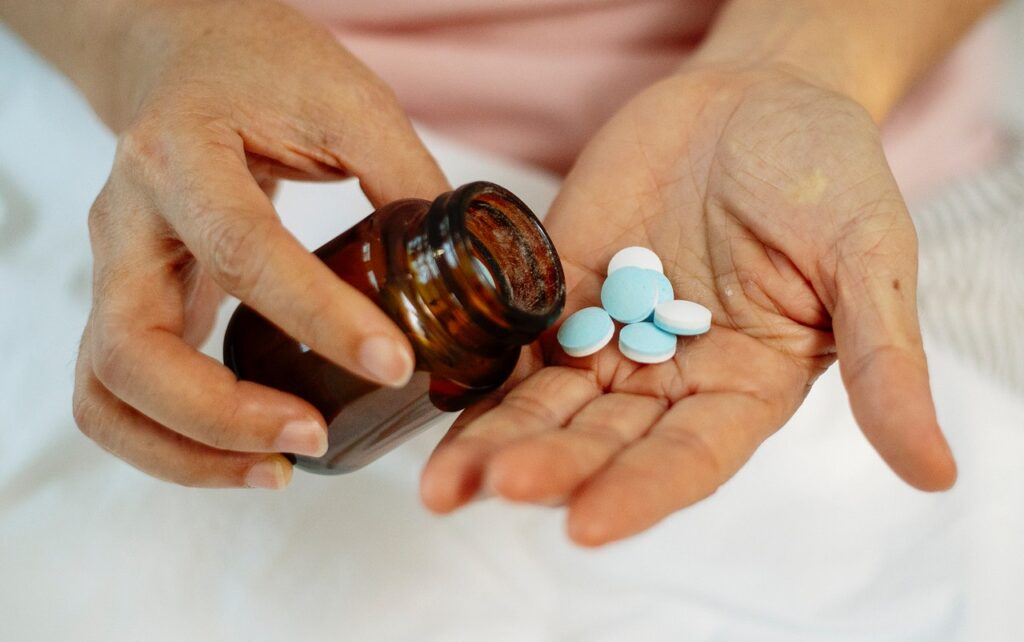Drug & Alcohol Rehab County Antrim & Near County Antrim
9.4% of the population, around 3.2 million people, used drugs in the UK in 2010. This is around 1 in every 11 adults, mostly occurring from ages 16 to 59.
- 1 in 5 of these adults had taken a drug in the last year.
- 1% of those aged between 60 and 74 have taken drugs in the last year.
- 4% of adults from 16-59 have taken a Class A drug in the last year.
- 1% of adults aged 16-59 classed themselves as ‘frequent drug users.
- 3% of adults ages 16- 24 classed themselves as ‘frequent drug users.
Cannabis is the most used drug; around 19% of those aged 16 – 24 use cannabis yearly. In contrast, amphetamine use has fallen by 42% in adolescents, continuing its decline since the late 1990s.
The Office for National Statistics published a report showing data from 2019 to 2020.
They found that over 270,705 adults had been in contact with alcohol and drug services, paralleling the same numbers from the previous year.
The number of people in treatment for the use of opiates went up from 2019 to 2020, from 139,845 to 140,599. This remains the largest problematic substance use.

The next largest problematic group was alcohol; over 28% of adults in treatment have an issue with alcohol. There has also been an increase in those receiving treatment for crack cocaine, with and without opiates.
2021 will be the 6th consecutive year of seeing a rise in crack cocaine use and treatment, 36% higher than the statistics from 2014. 2019 and 2020 also saw a rise in ketamine treatment and addiction, by over 19%.
The age of those in treatment has continuously shown an increase in older age groups.
55% of people in treatment were over the age of 40, whilst 10% of those in treatment were under 30. In addition, 69% (2 in 3) of those in treatment were male, whilst 31% of those in treatment were women.
However, this changes depending on the type of drug or alcohol, as females make up 40% of those in treatment for alcoholism.
Of those starting treatment:
- 59% struggled with alcohol.
- 32% struggled with opiates.
- 22% struggled with crack cocaine.
- 20% struggled with cannabis.
- 16% struggled with cocaine.
There are rehabs for both behavioural addictions and physical dependence.
Specialised alcohol and drug rehabs can treat a wide range of addictions and substance use disorders from benzodiazepines to gambling addiction, ketamine, opioid use disorder, and cannabis use disorder.
Rehab centres can assist you in recovering in a safe atmosphere away from any enabling individuals or influences, such as relationships where codependency could be unintentionally enabling your addiction.
Contingency management and coping mechanisms will instill a strong foundation, so you rehab with a safety net of tools and skills to remain abstinent.
Please call our 24-Hour Helpline:0800 140 4690.
Alcohol Addiction: What is it?

Before you look at rehabilitation and therapy for alcohol or drug addiction in Antrim, it is useful to know the definition of addiction.
Alcohol dependency or alcohol addiction is both a physical and psychological condition. Those who fall within this bracket struggle to control their drinking habits, including when they drink and how much.
Addiction of this scale usually interferes with daily life in Antrim, causing issues with relationships, family, work, and health.
This means the user in question cannot stop consuming alcohol voluntarily and has limited ability to cut down or stop drinking, accompanied by frequent intoxication.
If you think you or a loved one are struggling with alcohol in Antrim, you might benefit from an at-home questionnaire. They have proven effective at recognizing damaging drinking habits and also adapted to stop harmful drug use.
Rehab for alcohol addiction

The CAGE questionnaire is one way to measure alcohol addiction, and looks at your usage of and emotions about alcohol.
Alcohol dependence can develop from either infrequent or binge drinking, and both of these will be evaluated throughout your examination.
Free and charitable organisations like Al-Anon and Alateen can offer you support and guidance at no cost to yourself.
If you need an alcohol detox, it’s vitally important that this is supervised by a medical professional.
When done improperly or without medical advice, you risk developing harmful alcohol withdrawal symptoms like alcohol withdrawal syndrome and Delirium Tremens.
Alcoholic hepatitis and Wernicke encephalopathy is another side effect of heavy alcohol use, which manifests in confusion and mobility problems.
If you’re a child of a parent affected by alcohol use, you can receive free help from The National Association for Children of Alcoholics.
Please call our 24-Hour Helpline:0800 140 4690.
Rehab for Cocaine in Antrim or near County Antrim

Cocaine and crack cocaine are some of the most addictive substances. This is because it briefly stimulates pleasure centres in your brain by elevating dopamine levels.
Positive, energising emotions are also produced by the rise in dopamine, which makes you want to take more after the benefits wear off.
As your tolerance increases, you’ll discover that you need to take more cocaine to achieve the same impact, which will set off a vicious cycle of Cocaine dependence.
A few key symptoms of cocaine addiction include increased energy levels, agitation and an a bigger appetite.
Rehab for Heroin

Particularly with heroin, withdrawal symptoms often begin six to twelve hours after your last dosage, peak one to three days later, and then go away within a week.
Depending on your level of addiction, that may fluctuate.
Sadly, all of this makes it a very challenging medication to get off of. Therefore, a detox is essential before beginning any mental health treatment.
Following a detox period, you’ll receive the same mental health services provided in other types of rehab here, along with drugs to ease your symptoms from heroin withdrawal.
The CAGE Questionnaire:

- Have you ever felt you should CUT down your drinking? YES/NO
- Have people ever ANNOYED you by critiquing your drinking? YES/NO
- Have you ever felt bad or GUILTY about your drinking? YES/NO
- Have you ever had a drink first thing in the morning to steady nerves or in order to get rid of a hangover? YES/NO
CAGE Questions Adapted to Include Drug Use (CAGE-AID)
- Have you ever felt you ought to cut down on your drinking or drug use?
- Have people annoyed you by criticizing your drinking or drug use?
- Have you felt bad or guilty about your drinking or drug use?
- Have you ever had a drink or used drugs first thing in the morning to steady your nerves or to get rid of a hangover (eye-opener)?
If you answer a yes (1) instead of a no (0) and accumulate a score of over 2, this is classed as medically significant.
This means you might have alcohol or drug-related issues; you should either take more tests or reach out to us concerning rehabilitation in Antrim.
Please call our 24-Hour Helpline:0800 140 4690.
DSM-IV list of symptoms

There are more clinically verified criteria regarding substance abuse. The DSM-IV provides a list of symptoms that you may notice if you or a loved one is struggling with substance abuse.
- Taking the substance in larger amounts or for longer than you’re meant to.
- Wanting to cut down or stop using the substance but not managing to.
- Spending a lot of time getting, using, or recovering from the use of the substance.
- Cravings and urges to use the substance.
- Not managing to do what you should at work, home, or school because of substance use.
- Continuing to use, even when it causes problems in relationships.
- Giving up important social, occupational, or recreational activities because of substance use.
- Using substances again and again, even when it puts you in danger.
- Continuing to use, even when you know you have a physical or psychological problem that could have been caused or made worse by the substance.
- Needing more of the substance to get the effect you want (tolerance).
- Development of withdrawal symptoms, which can be relieved by taking more of the substance.
Of these symptoms:
- 2-3 symptoms indicate mild substance use disorder
- 4-5 symptoms indicate a moderate substance use disorder
- 6+ symptoms indicate a severe substance use disorder
Please call our 24-Hour Helpline:0800 140 4690.
When assessing addiction, the American Society of Addiction Medicine’s Patient Placement Criteria (ASAM Criteria), will be used as part of the admissions process.
This helps your provider to create a person centred care plan, so that all of your needs and health concerns are met.
The AUDIT Alcohol Screening Test

The alcohol screening test (AUDIT) is an extended and developed version of the CAGE questionnaire. You should answer the first four questions, and if you score as ‘fast+’, you should complete the following six questions (10 altogether).
Audit Questionnaire (alcohol use disorders identification test):
- How often have you had six or more units, if you are female, or eight or more if you are male, on a single occasion in the last year?
- How often have you failed to do what was normally expected from you during the last year because of your drinking?
- How often during the last year have you been unable to remember what happened the night before because you had been drinking?
- Has a relative, friend, doctor or other health worker been concerned about your drinking or suggested that you cut down?
- How often do you have a drink containing alcohol?
- How many units of alcohol do you drink on a typical day when you are drinking?
- How often during the last year have you found that you were not able to stop drinking once you had started?
- How often during the last year have you needed an alcoholic drink in the morning to get going after a heavy drinking session?
- How often have you felt guilt or remorse after drinking during the last year?
- Have you or somebody else been injured as a result of your drinking?
During admission and diagnosis, The Diagnostic and Statistical Manual of Mental Disorders, Fifth Edition, sometimes referred to as the DSM-5, categorises addiction into three stages of severity.
These levels are utilised, together with the ASAM criteria, to classify every case and create a rehabilitation plan that’s right for you.
Please call our 24-Hour Helpline:0800 140 4690.
Dual Diagnosis: Mental Health Conditions

The link between drugs, alcohol and mental health has been proven time and time again. Unfortunately, they are trapped in a continuous nexus of causation; addiction is a symptom of mental disorder, and mental disorder is a symptom of addiction.
This is commonly referred to as comorbidity, where two disorders (such as substance abuse (SUD) and mental health) co-exist in the same person at the same time.
For example, over 60% of young adults who are already in SUD treatment will have a mental illness such as anxiety and depression, according to American statstics.
Adolescents appear most at risk, specifically from the ages of 18 – 25. During these ages, the brain functions are still in the stage of development.
It’s also common for those struggling with addiction to have bipolar disorder, schizophrenia, eating disorders, post traumatic stress disorder (PTSD), obsessive compulsive disorder, borderline personality disorder, or bipolar disorder.
Of these functions, impulse control and decision-making are the last to mature and develop. Unfortunately, this means that people of this age become more vulnerable to drug use, alcoholism, and related crimes.
Mental health concerns can be diagnosed and treated following a comprehensive psychiatric assessment.
These links leave us with three main hypotheses:
- Common risk factors attributing to both addiction and mental disorder
- Mental illness attributes to addiction
- Addiction contributes to mental illness
Research has proven that genetics can cause both addiction and mental illness. Around 50% of those who are deemed vulnerable to substance use disorders are vulnerable due to their genetic makeup.
These genetics can also influence alcohol tolerance, drug reaction, and the time of substances in the body.
This has also been linked to stress, trauma and environment – traumatized and stressed people are at much higher risk of SUDs, attempting to self-medicate their mental conditions.
Many that self-medicate believe that drugs or alcohol relieve their symptoms, but this is only a short-term response. They are, in fact, more likely to exacerbate mental health problems, specifically after intense and prolonged use.
Using substances to this extent can change and damage the function of the brain, causing mental illness.
Stimulant drugs such as cocaine have anxiety-inducing effects, and hallucinogenic drugs such as magic mushrooms can lead to a feeling of derealization.
There is rehabilitation available in Antrim for comorbidity, but we ought to consider intervention before alcohol rehab County Antrim is discussed.
Psychiatric treatment from trained psychiatrists can help you treat any underlying mental health issues and help you eliminate the root causes of your addiction.
You can also get free mental health support from organisations like Mind UK, Young Minds, Rethink Mental Illness, Samaritans and Papyrus.
Free, trustworthy information is available through The NHS website and NHS Foundation Trust services.
Please call our 24-Hour Helpline:0800 140 4690.
Intervention: The CRAFT Approach

Intervention for drug and alcohol abuse aims to get the user into rehabilitation in Antrim, preventing or reducing the risk of addiction.
Community Reinforcement And Family Training (CRAFT) aims to increase the compliance of family and concerned others, engaging with the addicted individual.
CRAFT revolves around motivation and communication. This is scientifically grounded and designed as a new intervention method that diverges from old confrontation styles.
Family members make important contributions regarding whether an addict receives and stays in treatment and motivation.
CRAFT uses a positive approach, reconfiguring the reward pathway of the brain. By positively rewarding anti-using behaviour and letting the negative consequences of using happen, the addict slowly recognises what will give them the positive reward.
The following are research outcomes of drug and alcohol intervention, comparing the CRAFT technique to other intervention styles.
In 1986, Sisson and Azrin assigned 12 women to craft and traditional intervention, all of who had an alcoholic father, brother or husband.
Results were clear: CRAFT was considerably more successful at getting the alcoholic into treatment or reducing their alcohol intake.
In 1999, Miller et al. compared CRAFT to the Johnson Intervention and AI-Anon facilitation. They selected 130 caregivers with problematic drinking habits to receive 12 hours of one of the three therapies.
The results:
- CRAFT has better retention, consistent with previous studies.
- Participants tended to leave or drop out of the Johnson Intervention and Al-Anon in order to avoid confrontation.
- CRAFT engaged more drinkers in treatment (64%)
Regarding drug users, Kirby et al. in 1999 assigned 32 drug users to CRAFT or to a 12-step self-help group. Those assigned to CRAFT attended more sessions than others and became 64% more likely to enter treatment than the others (17%).
Please call our 24-Hour Helpline:0800 140 4690.
Rehabilitation in or near County Antrim: Costs and Variants

There will be multiple rehab centres available in Antrim. The main difference in rehabilitation lies in whether you want, or need, to live in the Antrim clinic.
If you still live at home but attend the centre for therapy, medication, and support, you are part of the outpatient rehabilitation routine.
Outpatient centres in Antrim are commonly referred to through the NHS, but inpatient centres usually ask you to pay out of pocket.
Inpatient rehabilitation in Antrim is a live-in therapy approach where your needs are catered for 24/7. This is intense, with a strict routine and plan.
The common misconception is that inpatient rehabilitation is only for celebrities, and they cost a large amount of money.
In reality, despite being expensive, you can set up a payment plan with the clinic if that is the treatment that you need or desire.
Prices can range from 14,000 to over 70,000 for a month’s stay; a period of 28 days is suggested, with a minimum of a seven-day detox.
The price for inpatient treatment covers:
- Rent and residency
- Utilities and therapy
- Medication
- Food and faculties
- Staff training
Many free and NHS-run recovery services operate throughout County Antrim and the rest of Northern Ireland, including:
1. CAMHS Antrim Team
Address: Massereene House, Ferrard Site, Station Road, Antrim, BT41 4AB
Telephone: 028 9441 5700
2. CAMHS East Antrim
Address: Antrim Area Hospital, Bush Road, Antrim, BT41 2QB
Telephone: 028 9442 4600
3. ASCERT, near County Antrim
Address: Callan House Westcourt Centre, 8-30 Barrack Street, Belfast, BT12 4AH
Telephone: 0800 254 5123
Website: https://www.ascert.biz/
4. Drugs and Alcohol Northern Ireland, near County Antrim
Telephone: 028 2568 9306
Website: https://drugsandalcoholni.info/
The Support Groups Change Grow Live, We Are With You and Turning Point can also provide charitable services at no charge.
Detoxing at Rehab in or near County Antrim
Substances that are not physically addictive, such as cannabis and cocaine, do not require a medically-assisted detox.
However, for physically addictive dependencies , such as heroin and alcohol, you will be asked to complete detox in the selected rehab centre in Antrim.
A Librium-based detox for alcoholism is known as pharmacological intervention.
Over a 10-day period, you will be prescribed Librium to reduce the large risks of seizures and anxiety than accompanies alcohol withdrawal.
Librium is addictive itself, so the doses are monitored and reduced over the 10-day period. Librium rebalances the damaged brain chemistry, aiding the regulation of neurotransmission.
Medications such as Buprenorphine and Chlordiazepoxide can also ease addiction withdrawal symptoms to allow you to feel more comfortable as you make the transition between addiction and recovery.
Please call our 24-Hour Helpline:0800 140 4690.
Types of therapy available in Antrim

The National Institute for Health and Care Excellence sets out standards to make sure all treatments provided by healthcare providers adequately meet quality guidelines.
Cognitive behavioural therapy in or near County Antrim
Cognitive Behavioural Therapy (CBT) has been consistently used for substance use disorders (SUDs). SUDs are heterogeneous conditions characterized by the use of substances.
Research has shown the efficacy of CBT for both alcohol and drug use disorders; a study of cocaine treatment reported that 60% of patients from CBT provided a clean toxicology scan at their follow-up appointments.
CBT focuses on anxiety and depression based on the roots of thoughts and feelings.
Thoughts are connected to the way you behave, proving that our negative patterns are linked to our past and state of mind. CBT emphasizes the change in negative thought configurations and promotes healthy coping mechanisms.
The fundamentals of CBT:
- Psychological disorders are based on thought patterns
- Psychological disorders are based on patterns of behaviour
- Psychological disorders can thus be relieved by changing thought patterns and behaviours
Please call our 24-Hour Helpline:0800 140 4690.
Dialectical behavioural therapy in or near County Antrim

Dialectical behaviour therapy (DBT) is a form of CBT available in Antrim but specially adapted for mood disorders and suicidal ideations. Here, the therapist and patients work towards self-acceptance and a balance.
DBT is intended to aid emotional regulation by learning to cope in reactive states such as unavoidable and undesired emotions.
DBT combines standard CBT techniques regarding cognitive regulation based on a biosocial theory of mental disability.
The first few trials of DBT proved to reduce rates of suicidal thoughts and behaviours and psychiatric hospitalizations.
It has now become a standard part of the ‘third wave’ of CBT; patients ought to view the therapist as an ally, validating and accepting their feelings and emotions, even if you don’t
The four modules of DBT:
- Mindfulness
- Acceptance and change
- Distress tolerance
- Emotion regulation
Please call our 24-Hour Helpline:0800 140 4690.
Group Therapy

There are other, more group-based therapies available in Antrim. Alcoholics Anonymous, Narcotics Anonymous and Cocaine Anonymous are all examples of 12-step facilitation therapy.
These 12-step programmes use a spiritual approach that looks to a higher power for help healing from addiction.
Support groups are a fantastic way to begin therapy and not feel alone.
Strangers gather to share experiences, stories, and triggers, all of which you will be able to relate to. The classic 12-steps originate from its foundation:
- We admitted we were powerless over alcohol – that our lives had become unmanageable.
- Came to believe that a Power greater than ourselves could restore us to sanity.
- Made a decision to turn our will and our lives over to the care of God as we understood Him.
- Made a searching and fearless moral inventory of ourselves.
- Admitted to God, to ourselves and to another human being the exact nature of our wrongs.
- Were entirely ready to have God remove all these defects of character.
- Humbly asked Him to remove our shortcomings.
- Made a list of all persons we had harmed and became willing to make amends to them all.
- Made direct amends to such people wherever possible, except when to do so would injure them or others.
- Continued to take personal inventory and, when we were wrong, promptly admitted it.
- Sought through prayer and meditation to improve our conscious contact with God as we understood Him, praying only for knowledge of His will for us and the power to carry that out.
- Having had a spiritual awakening as the result of these steps, we tried to carry this message to alcoholics and practice these principles in all our affairs.
Group psychotherapy allows you to connect with others in recovery and build new relationships while you heal from any mental health set-backs.
Please call our 24-Hour Helpline:0800 140 4690
Holistic and Alternative Therapies

Holistic therapy is available in Antrim. Holistic therapy is a therapy for the whole body, rather than focusing on one part of the symptom.
This originates from the Greek word for ‘whole’; we, as human beings, are not merely physical bodies but minds too.
This is an all-encompassing therapy, not a ‘one size fits all’ approach. Everyone has different needs, so a spiritual approach is an umbrella method, welcoming all issues. There are many forms of holistic therapy:
- Equine Therapy
- Ear Acupuncture
- Meditation and Tai chi
- Mindfulness
- Art therapy
- Animal therapy
- Nutritional education
- Art Therapy,
- Music Therapy
- Drama therapy
- Mindfulness
Please call our 24-Hour Helpline:0800 140 4690
Other Types of Therapy
Acceptance and Commitment Therapy is a common therapy you’ll encounter in rehab. A form of mindful psychotherapy, ACT therapy can assist you to focus on the present moment and accept your thoughts and feelings without passing judgement.
It aims to assist you in overcoming challenging emotions so you can focus on healing, rather than lingering on your past.
Eye Movement Desensitization and Reprocessing is a modern alternative to talking therapies that has shown fantastic results for conditions from anxiety to PTSD.
Individual Therapy consists of one-to-one sessions with a therapist or psychiatrist, which can be extremely helpful for addressing more personal concerns regarding recovery.
Brief Interventions are essential to the healing of many patients. People frequently become aware of their need for assistance after seeing how their addiction seems to others (and learning how it has affected those close to them).
Family therapy can help you rebuild connections with your loved ones.
Motivational therapy and Motivational Interviewing encourages participants to make positive changes to their lives through a series of non-judgmental questions.
Rational Emotive Behaviour Therapy is a hands-on approach to treatment that teaches you how to understand and control your emotions, and can help you improve your chances of long-term sobriety.
Relapse Prevention

After you’ve left rehab, a dedicated aftercare service will keep you on the right path. As you navigate your new life in recovery, you’ll get regular check-ins and assistance to ensure you’re managing any relapse triggers, and coping with the temptations of everyday life.
This can be followed up by relapse prevention techniques. These techniques can be more support groups in Antrim or home detoxing.
SMART Recovery is a four-step programme:
- Building and maintaining motivation
- Coping with urges
- Manage thoughts, feelings and behaviours
- Live a balanced life
SMART, Self-Management and Recovery Training is a programme that equips those who are recovering with tools to change problematic behaviour, guided by trained therapists and facilitators.
Using a variety of CBT techniques, the four points are used in the recovery journey. SMART is an advocator of personal choice, the choice to engage and the choice to stop.
There are many other methods of relapse prevention, such as being aware of:
- Boredom
- Stress
- Triggers – certain people/places
- Money or relationship issues
- High emotions or reactions to situations
Try and practice self-care, including exercise and good nutrition. In addition, mindfulness and meditation can prevent you from falling into a pit of emotion, so it is important to understand what may trigger you.
After rehabilitation, an excellent place to start is in sober living houses. These living arrangements give you and other people on the same road a secure environment free from relapse triggers where you can support one another as you rebuild your life.
Be sure to utilize self-help groups in Antrim, such as the AA, and keep talking to friends and family.
Please call our 24-Hour Helpline:0800 140 4690.
Get Help Today

To discuss your options for alcohol and drug rehab in County Antrim, please contact us today on 0800 088 66 86.
Many of our team members have had personal experience with addiction problems, so the advice we give will often be influenced by personal experience as well as knowledge of what is available in regard to treatment.
Get help for addiction across Northern Ireland, including in Belfast, Lisburn, Derry, Newry, Newton Abbey, Bangor, Armagh, Ballymena, Newtownards, Carrickfergus, Coleraine, Lurgan, Portadown, Antrim, Larne, Dungannon, Banbridge, Dundonald, Enniskillen, Strabane, Craigavon and many more.
To ensure the highest standards, we only offer referrals to treatment centres vetted by the Care Quality Commission.
Together, we can beat addiction.



